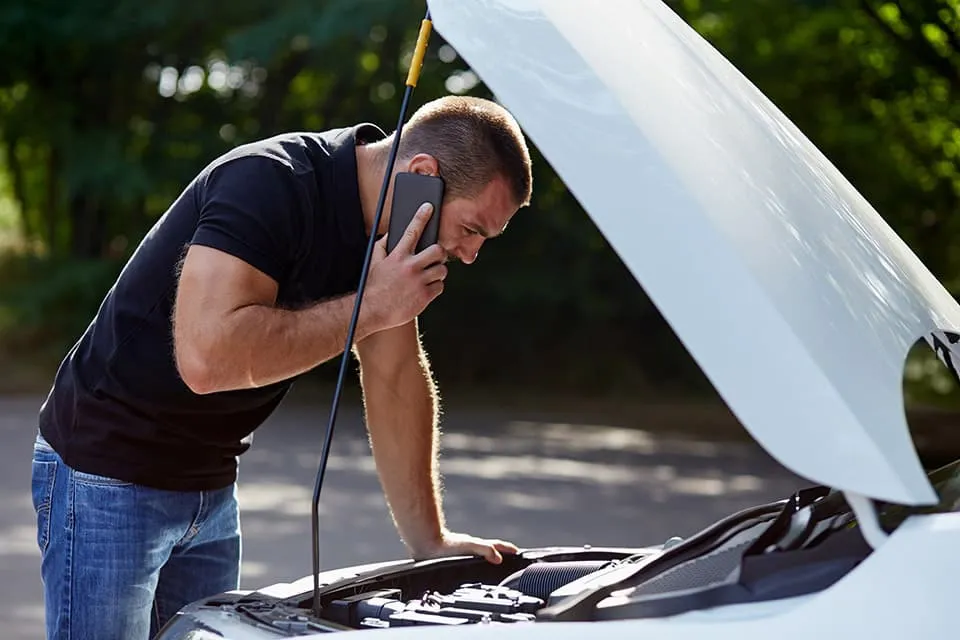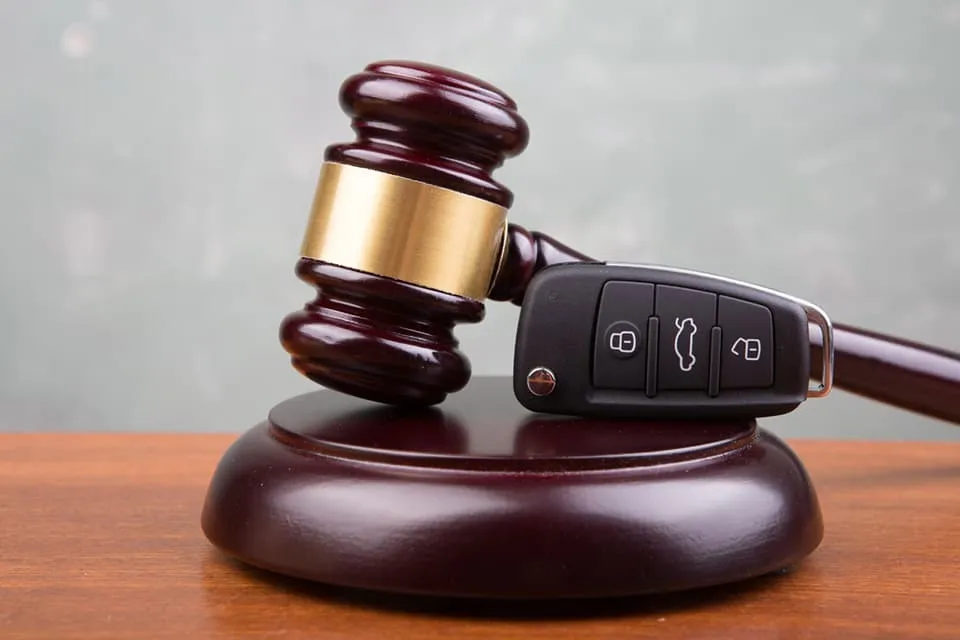What Is a Lemon Car: Definition And Laws

Next to purchasing a home, a car purchase will likely be one of your most substantial purchases. However, a new car can also be one of the most exciting and rewarding purchases. Therefore, you want to choose a vehicle that will provide years of enjoyment and use.
The last thing any consumer wants is to purchase a car that turns out to be a lemon. Dealing with a defective vehicle can be a frustrating experience. Thankfully, some laws help protect consumers who find themselves in this unfortunate situation.
What Makes a Car a Lemon?
A lemon car has at least one serious, irreparable defect or problem discovered during a certain period of time after purchase and which is covered under warranty.
Problems that are not considered substantial, such as a problem with the entertainment system, are not regarded as serious enough to give a car a lemon title. However, irreparable problems such as a defective engine or brake system, which would make the car unsafe or inoperable, are the type of problems that could make a car a lemon.
Where Did The Term Lemon Car Come From?
The term "lemon car" originates from early 20th-century American slang. The word "lemon" was used to refer to something worthless or that doesn't meet expectations. This slang was popularized by British and American culture, where a "lemon" represented a poor investment or an item of significantly lower quality than was promised. In the context of cars, the term "lemon car" specifically refers to a vehicle that is found to have several manufacturing defects affecting its safety, value, or utility.
What Is a Lemon Law?
Both federal and state laws protect a buyer who has purchased a lemon car. All lemon laws require that the owner allow the dealer or manufacturer a reasonable number of attempts to fix the problem. What is considered a "reasonable number" varies by state; however, it is usually three to five attempts.
For example, under the state of New York's Lemon Law, a reasonable number of attempts is four visits to the dealership to repair the same problem without success, or if the vehicle has been in the repair shop for at least 30 days to fix the problem without success.
Under Pennsylvania's Lemon Law, a car is considered a lemon if it has been out of service for at least 30 days for defects. Under New Jersey's Lemon Law, the vehicle only needs to be out of service for a combined total of 20 days to be considered a lemon.
You will need to notify the dealership and manufacturer immediately if you have a problem with your new car because all lemon laws have a required time period for bringing a claim. You should also keep precise records of your notifications and records for repairs that the dealership has attempted. You will need to prove that your car meets the requirements to be classified as a lemon.
What To Do If Your Car Is a Lemon?

If your car has a substantial defect that cannot be repaired after a reasonable number of attempts, then you should be able to get a refund or a replacement vehicle from the manufacturer, as long as you act within the required time.
If the manufacturer refuses to give you a refund or replace your car, you may be able to find relief under the lemon laws. Each state's laws are different; however, you usually have a choice of arbitration or going to court. In addition, some state's lemon laws, including Pennsylvania, New York, New Jersey, and Maryland, entitle you to reimbursement for attorney fees if you win your case.
You must make your lemon car claim within a specific time period in all states. For example, in New Jersey and New York, lemon law claims must be made no more than 90 days after purchasing your vehicle.
In addition, the car must have been used only for household or personal use in most states. Generally, vehicles used by businesses are not protected by lemon laws. However, some states provide lemon law protection for recreational vehicles, all-terrain vehicles, boats, and motorcycles.
How To Avoid Buying a Lemon Car
Avoiding the purchase of a lemon car involves careful inspection and due diligence. Here are some key steps to help you avoid buying a lemon vehicle:
- Research the Vehicle’s History: Check the car's history report through GoodCar’s vehicle history report. These reports can reveal past accidents, service history, and whether the car was ever declared a total loss.
- Get a Pre-Purchase Inspection: Always have a trusted mechanic inspect the car before you commit. They can spot potential issues that aren’t obvious at first glance.
- Test Drive the Vehicle: Drive the car under various conditions to see how it handles and listen for any strange noises. Make sure all features, including brakes and electronics, are functioning properly.
- Research Recalls and Consumer Feedback: Look for any outstanding recalls on the vehicle, and read up on what other owners have to say about the model. Persistent complaints about a particular issue could be a red flag.
- Examine Service Records: Check the car’s maintenance history to ensure it’s been regularly serviced and to see if there have been recurring issues.
- Don’t Rush: Take your time with the purchase. A rushed decision might lead you to overlook important flaws.
By following these steps, you can significantly reduce your risk of buying a lemon vehicle and ensure that your next vehicle is reliable and in good condition.
What if I Don't Qualify Under My State's Lemon Laws?
If you do not qualify for protection under your state's lemon laws, you may find protection under specific federal lemon laws. The Magnuson Moss Law and the Uniform Commercial Code provide additional protection for consumers.
What Is the Magnuson Moss Law?

The U.S. Congress enacted the Magnuson Moss Act in 1975 to protect consumer rights and set forth the obligations of manufacturers who provide warranties of their products. It is a federal law that makes it easier for a consumer to sue a manufacturer for breach of warranty.
Under this law, consumers can bring a cause of action even if the warranty period has expired if the product's defects appeared before the expiration of the warranty period. Moreover, a consumer can sue for full or limited breach of warranty depending on the circumstances.
The Act only provides protection for products, not for services. Generally, it applies to household, family, and personal use consumer products.
Under the Magnuson Moss Act and the rules of the Federal Trade Commission (FTC), warrantors must abide by the following three requirements:
- They must designate in writing that the warranty or title is either full or limited.
- They must provide certain information about the warranty's coverage in one clear and easily readable document.
- They must ensure that they provide the written warranty where the consumer product is sold to allow the consumer to read the warranty before purchase.
The Act gives consumers the choice of bringing a cause of action in state court or federal court. For federal cases under the Act, the consumer must claim at least $50,000 in damages. This amount is typically lower than the requirement for most federal court claims.
What Is The Uniform Commercial Code?
The Uniform Commercial Code (UCC) is a broad set of laws that all 50 states have adopted. If you have purchased a lemon car, you may have relief under the UCC.
The UCC does not define exactly the requirements for a vehicle to be considered a lemon car. Therefore, a court would have to make that determination. The UCC laws provide that a consumer may be given a replacement vehicle or given a refund for a lemon car.
Lemon Car Frequently Asked Questions
What Manufacturers Have the Highest Rate of Lemon Cars?
While it varies from year to year, the following manufacturers have had higher rates of lemon cars:
- Fiat
- Cadillac
- Porsche
- Jeep
- Volkswagen
- Subaru
- Land Rover
- GMC
- Dodge
- Volvo
What Manufacturers Have the Lowest Rate of Lemon Cars?
Again, it varies from year to year; however, the following five car manufacturers have typically low rates than the industry average for lemon cars:
- Toyota
- Honda
- Mercedes
- BMW
- Buick
If My Car Has a Recall Issued, Does That Mean It is a Lemon?
No, a recall does not mean a car is a lemon. If your vehicle is issued a recall alert, you should take it to the dealership for repairs at no cost to you. If the dealership can't fix your car or is taking an unreasonable amount of time to do so, you may have a cause of action for relief.
How Do I Know if My Car Has a Recall Issued?
You should be notified by mail if your car has a recall issued. Recalls are also often announced through press releases and news outlets. However, you can also check for recalls on the National Highway Traffic Safety Administration site or use GoodCar's vehicle recall lookup tool.
What States Have the Strongest Lemon Laws?
While lemon laws vary by state and which ones are best is debatable, the following states are considered to have strong consumer protection lemon laws:
- New Jersey
- Washington
- Rhode Island
- Hawaii
- Ohio
- New York
- Maine
- Florida
- Texas
- District of Columbia
Which States Have the Weakest Lemon Laws?
In general, the following states lemon laws provide weaker protection to consumers:
- Illinois
- Colorado
- North Dakota
- Louisiana
- Missouri
- Nevada
- Utah
- Kansas
- Mississippi
- Alaska
If I Think My Car is a Lemon, Do I Need an Attorney?
It is often wise to seek the advice of an experienced lemon law attorney if you believe you have a case. An attorney specialized in lemon law can answer your questions such as:
- Is my car's problem substantial enough to qualify under the state's lemon law?
- What is the time period for me to make a lemon law claim in my state?
- How and when should I notify the manufacturer of my problem?
- What is a reasonable number of attempts to repair the car under my state's law?
- Do my state's lemon laws provide for attorney fees if I'm successful?
- What should I do if the time period has passed under my state's lemon laws?
- Should I file suit in state or federal court?
- Does my state provide lemon law protection for used cars?
- Do the lemon laws apply to leased vehicles?
- What kind of relief am I entitled to?
- What are the steps to filing a claim?
- How long should it take to get relief if I file a suit?
How Can I Tell if a Used Car is a Lemon?
While your state laws may or may not provide protection for used cars, you should always get a vehicle history report prior to purchasing one. With the Vehicle Identification Number (VIN), you can find a lot of important information about a used car you are considering.
FREE Vehicle Search
- Accidents
- Problem Checks
- Title Records
- Recalls
- Values
- Specs
-
InfoPay, Inc. (dba GoodCar) is an Approved NMVTIS Data Provider
-
-






























